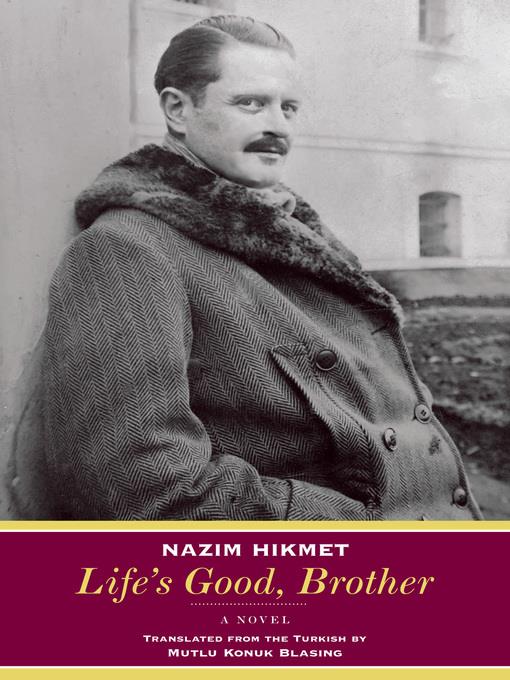
Life's Good, Brother
A Novel
- اطلاعات
- نقد و بررسی
- دیدگاه کاربران
نقد و بررسی

March 4, 2013
Initially published in Turkey in 1964, this novel by one of the country’s greatest poets portrays a chaotic time between wars in justifiably haphazard fashion. It’s 1925, and young communists Ahmet and Ismail have cached themselves in a cottage in the small town of Izmir. Ahmet’s paranoid cousin, a former member of the Young Turks, arrives, bringing with him memories of the Great Fire of Smyrna three years prior, when Izmir burned to the ground, effectively ending the Greco-Turkish War. During an excursion, Ahmet is bitten by a potentially rabid dog but refuses to seek treatment. While he imagines a 50% chance of getting rabies, “the chance the doctor will inform the police is one hundred percent.” So Ahmet stays put, counting days in anticipation of the sickness. Throughout this ordeal, the narrative skips around in time and voice. We hear of Ahmet’s student days in Moscow, his affection for a woman, and the rivalry with her other suitor, a Chinese student. We also learn of Ismail’s later ordeal as a political prisoner, the vivid details of which are the book’s strongest feature. Although reflective of the turbulent era, the back-and-forth structure weakens narrative cohesion, especially considering how little there is to distinguish the inner lives of the characters. However, many graceful gems outweigh the faults, making it worth the time.

May 1, 2013
It's 1925. Ahmet hides in a stone hut in Izmir with fellow Communist Ismail. Bitten by a possibly rabid dog and sure that seeking treatment courts imprisonment, Ahmet marks the door for each symptomless day of the 41 until he's in the clear. He casts back to his student days in Moscow and the Russian girl he had to leave without notice. He also casts forward to the 1930s and Ismail's repeated imprisonment, culminating in torture. Finally, he vaults to 1962, when, among his friends again, Ismail's wife fortuitously repeats Ismail's words from 1925, Life's good, brother. This autobiographical novel by Turkey's premier poet, in which both Ahmet and Ismail stand for him, is a major source for translator Blasing's biography of Hikmet (reviewed in this issue). Hikmet's commitment to accessibility ensures that the novel is never obscure or confusing, despite sparingly shifting between first- and third-person narration, even in a single paragraph, a seemingly cinematic device, like cutting from medium-shot to close-up or vice versa, that alters our emotional perspective on the characters.(Reprinted with permission of Booklist, copyright 2013, American Library Association.)




دیدگاه کاربران